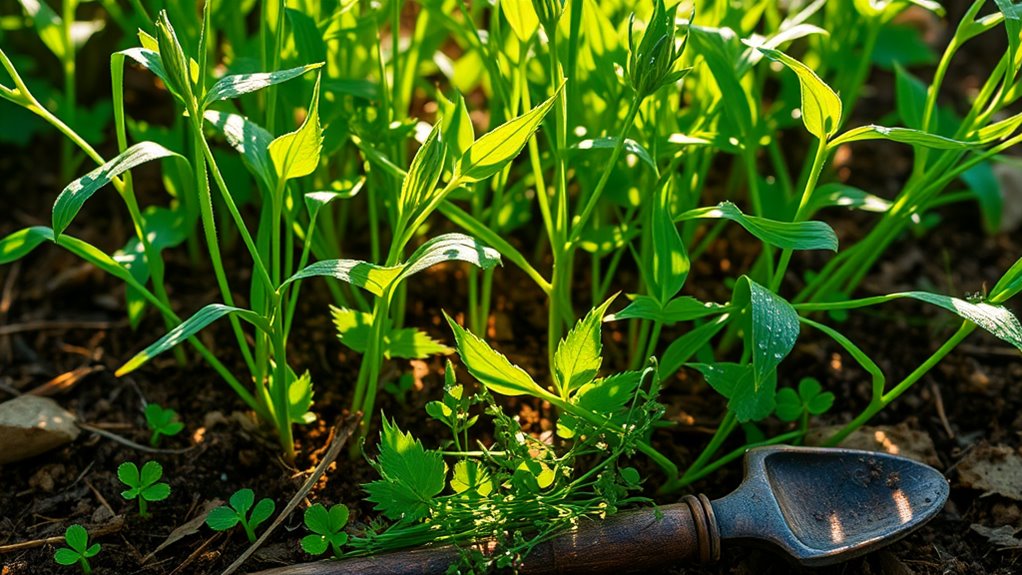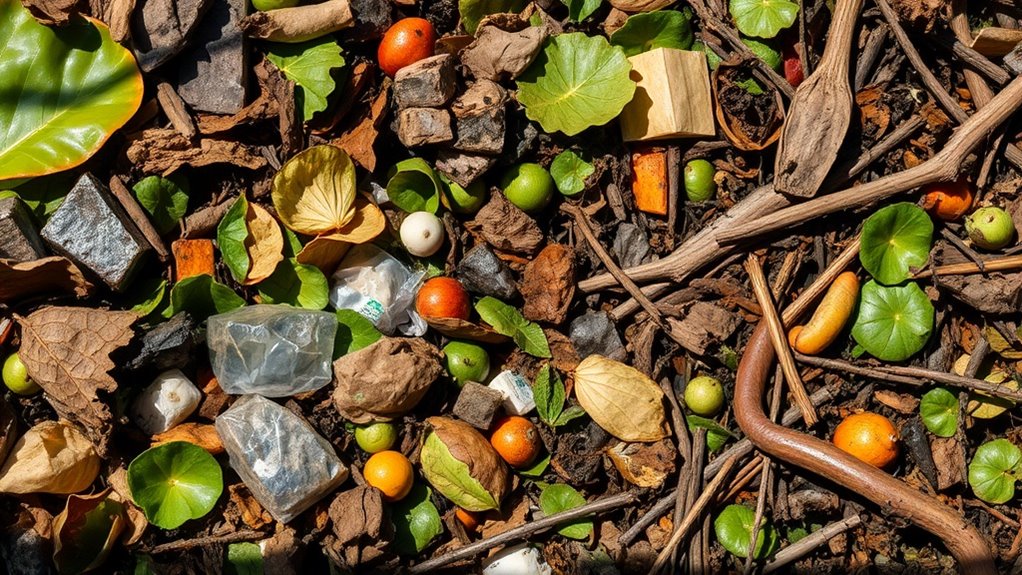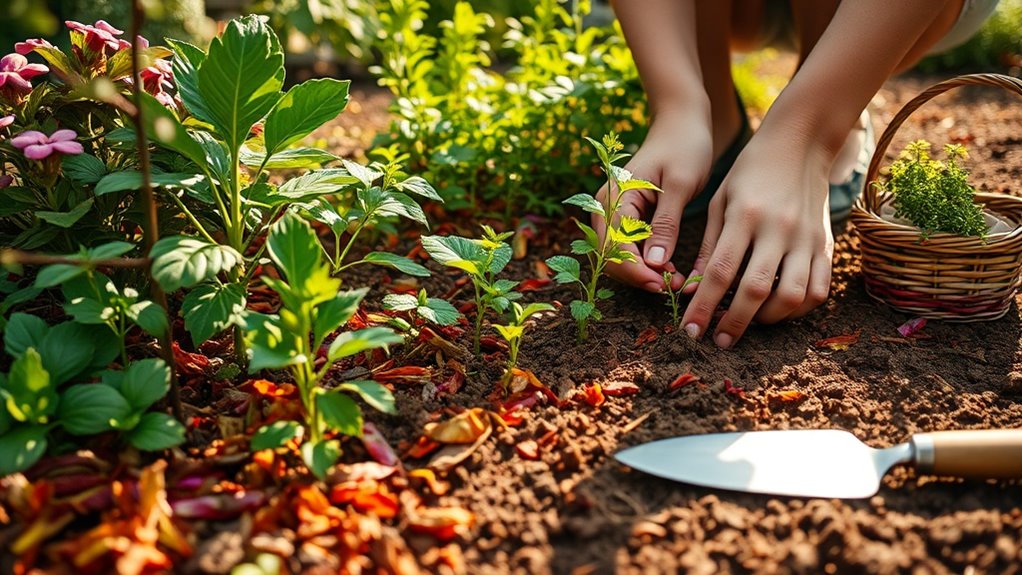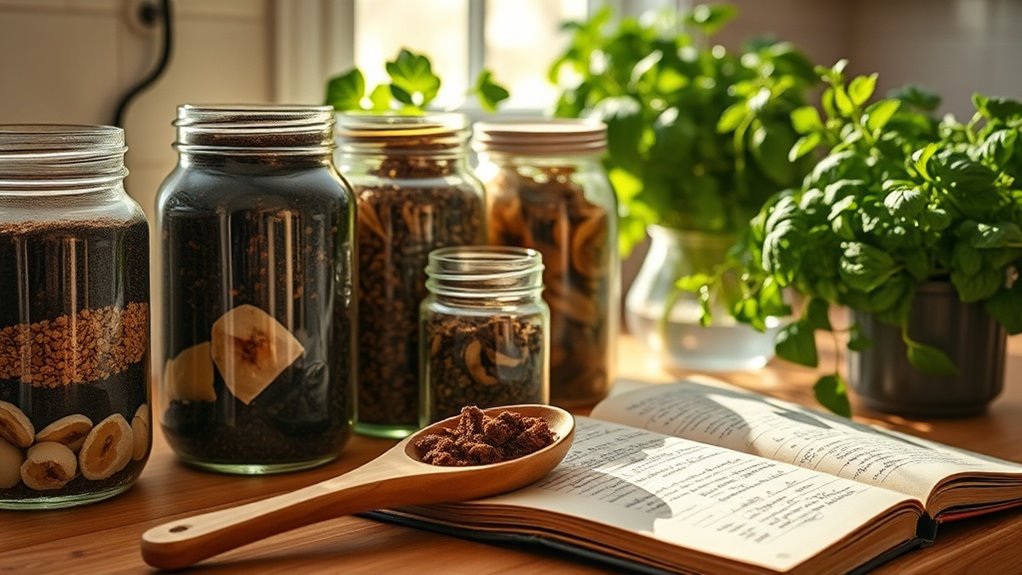This Natural Weed Trick Works Better Than You’d Think
Struggling with stubborn weeds can be frustrating, but you don’t need harsh chemicals to tackle the issue. By exploring natural alternatives like vinegar, salt, and boiling water, you can effectively manage your garden while promoting eco-friendliness. These solutions not only target weeds but can also improve the overall health of your garden. As you consider these options, it’s important to understand how they work and what preventative measures can enhance your efforts.
Understanding the Problem: Why Weeds Thrive
Weeds often flourish due to their adaptability, rapid growth, and ability to outcompete desirable plants for resources. By recognizing these characteristics, you can develop a comprehensive approach to natural weed control that addresses their strengths and minimizes their invulnerability. Additionally, implementing natural methods of weed elimination can create a healthier garden ecosystem.
Common Natural Weed Control Methods
When tackling weeds in your garden, employing common natural control methods can make a significant difference in managing their spread. Here’s a quick overview of effective strategies you can use:
| Method | Description |
|---|---|
| Mulching | Blocks sunlight and suppresses weed growth. |
| Hand Pulling | Manually removing weeds, especially in small areas. |
| Boiling Water | Destroys weeds quickly with hot temperatures. |
| Corn Gluten Meal | Acts as a natural herbicide when applied early. |
| Vinegar | High acidity dissuades weed growth (implement cautiously). |
Additionally, using eco-friendly pest control methods not only helps in managing weeds but also promotes a sustainable living environment.
The Power of Vinegar as a Weed Killer
Vinegar can be a surprisingly effective weapon in your gardening arsenal, especially when you want to tackle stubborn weeds without resorting to synthetic chemicals.
The acetic acid in vinegar strips moisture from weed leaves, causing them to wilt and die. For best results, apply it on sunny days, targeting the plants directly. Additionally, vinegar can also be used in various ways for garden pest control, providing an eco-friendly solution for keeping unwanted pests at bay. Be cautious, as it can also harm nearby desirable plants.
Salt: An Effective Herbicide in the Garden
Salt can serve as a potent herbicide for gardeners looking to manage weeds effectively. When using salt, it’s essential to apply it carefully to avoid harming desired plants. Here’s a quick overview of how salt works as an herbicide:
| Aspect | Details |
|---|---|
| Effectiveness | Destroys weed cell structure |
| Application | Poured directly or mixed with water |
| Target Weeds | Broadleaf and grassy weeds |
| Safe for Wildlife | Low toxicity in small amounts |
| Caution | Can harm surrounding plants |
Using salt in your garden can provide a natural alternative to synthetic chemicals that may harm existing flora in your garden.
Utilizing Boiling Water for Instant Results
If you’re looking for a quick and eco-friendly way to tackle stubborn weeds, utilizing boiling water can deliver instant results. Pouring boiling water directly on weeds effectively kills them without harmful chemicals.
-
Targets roots effectively
-
Safe for surrounding plants when used carefully
-
Quickly accessible and easy to apply
This method offers a simple yet effective solution for maintaining a healthy garden. Additionally, boiling water can be an organic herbicide that not only controls weeds but also enriches the soil as it cools down.
Preventative Measures: Keeping Weeds at Bay
While many gardeners focus on reactive measures to eliminate unwanted plants, adopting preventative strategies can significantly reduce the likelihood of weeds taking root in the first place.
Start by mulching your garden beds; this blocks sunlight and inhibits weed growth.
Additionally, consider crop rotation to disrupt weed seeds and enhance soil health.
Maintaining healthy plants through proper watering and fertilization also helps discourage weed proliferation. Furthermore, the presence of certain weeds can serve as indicators of soil health, revealing crucial information about nutrient levels and overall garden conditions.





